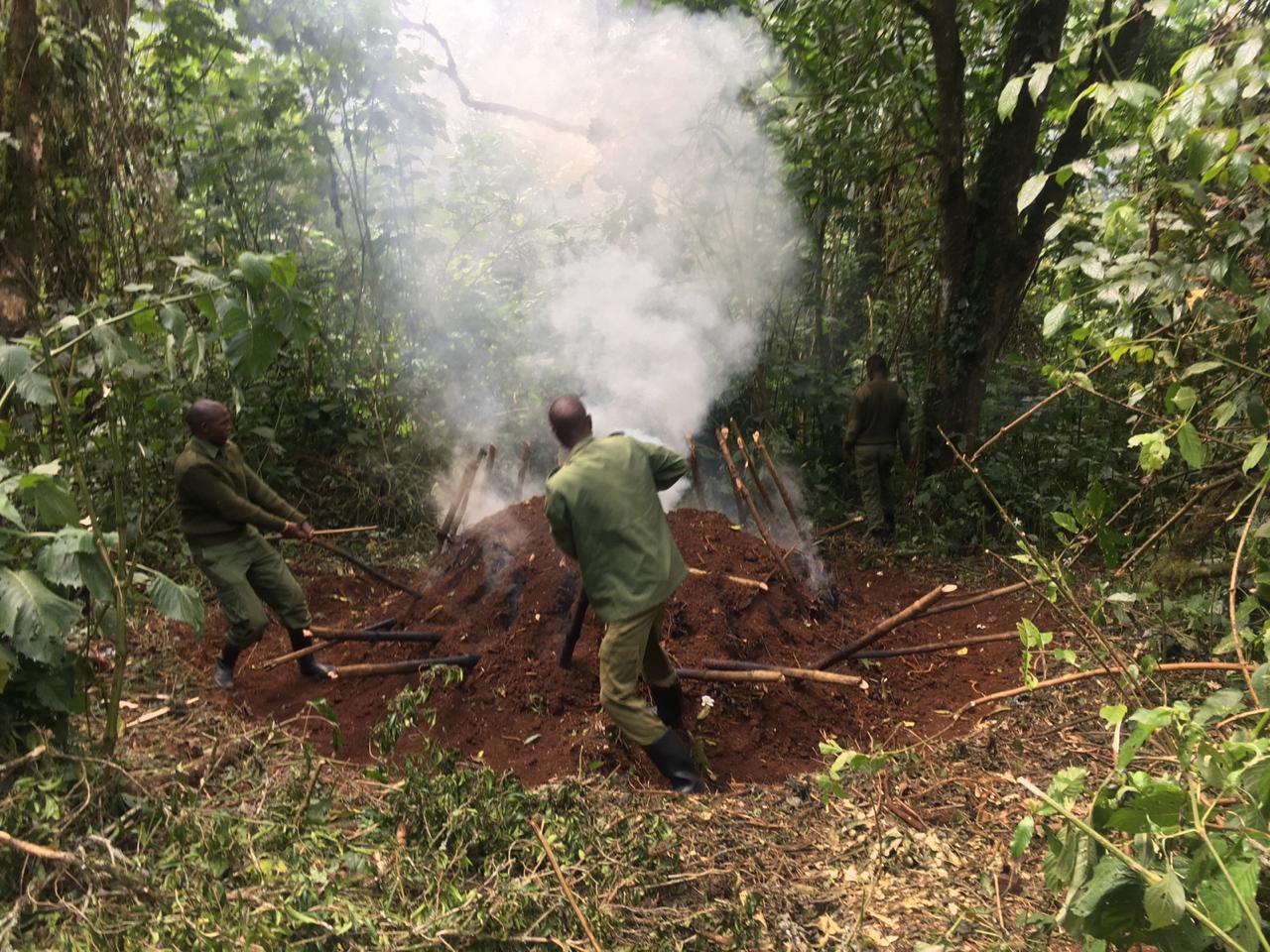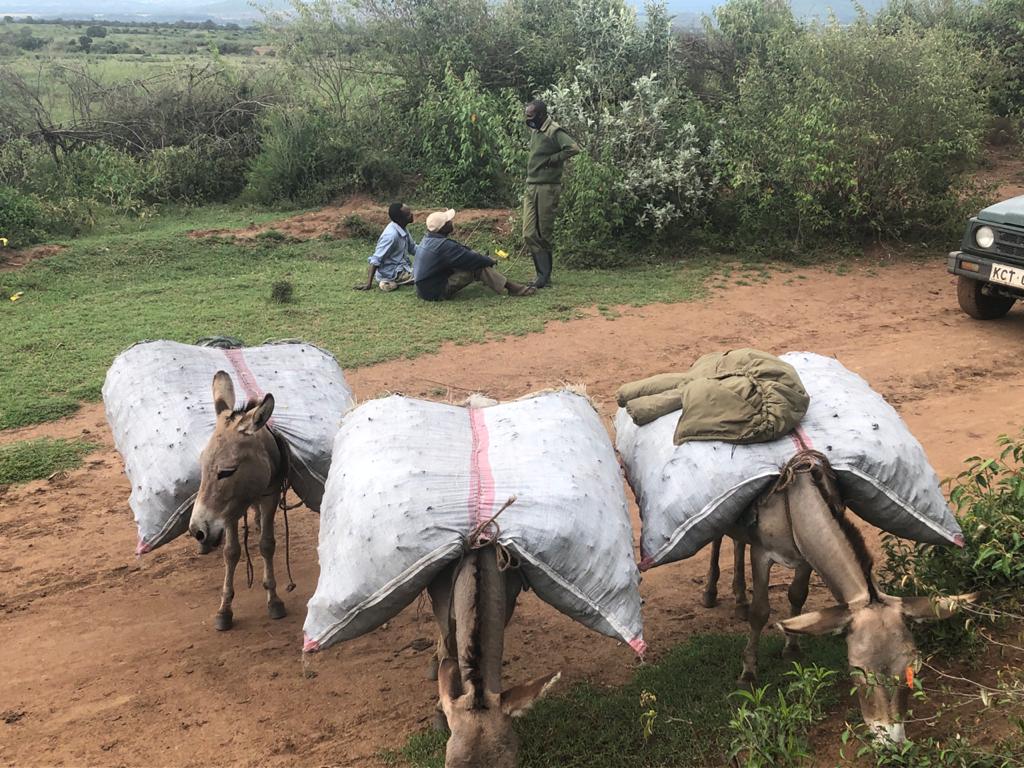 Mara Elephant Project’s intelligence unit started off 2021 with several key ivory busts. On January 5, MEP’s intelligence unit alongside Kenya Wildlife Service (KWS) arrested two suspects in possession of 30 kg of ivory. The team suspects this ivory came from Tanzania and are glad they were able to successfully remove it from the market. Then, on January 14, the MEP intelligence unit along with KWS arrested one suspect in possession of two elephant tusk weighing 11 kilograms estimated to be worth a street value of Ksh.1.1 million according to Citizen TV in Kenya. The national news in Kenya featured ivory seizures and arrests that involved MEP intelligence on January 7 and again on January 20, both on Citizens TV.
Mara Elephant Project’s intelligence unit started off 2021 with several key ivory busts. On January 5, MEP’s intelligence unit alongside Kenya Wildlife Service (KWS) arrested two suspects in possession of 30 kg of ivory. The team suspects this ivory came from Tanzania and are glad they were able to successfully remove it from the market. Then, on January 14, the MEP intelligence unit along with KWS arrested one suspect in possession of two elephant tusk weighing 11 kilograms estimated to be worth a street value of Ksh.1.1 million according to Citizen TV in Kenya. The national news in Kenya featured ivory seizures and arrests that involved MEP intelligence on January 7 and again on January 20, both on Citizens TV.
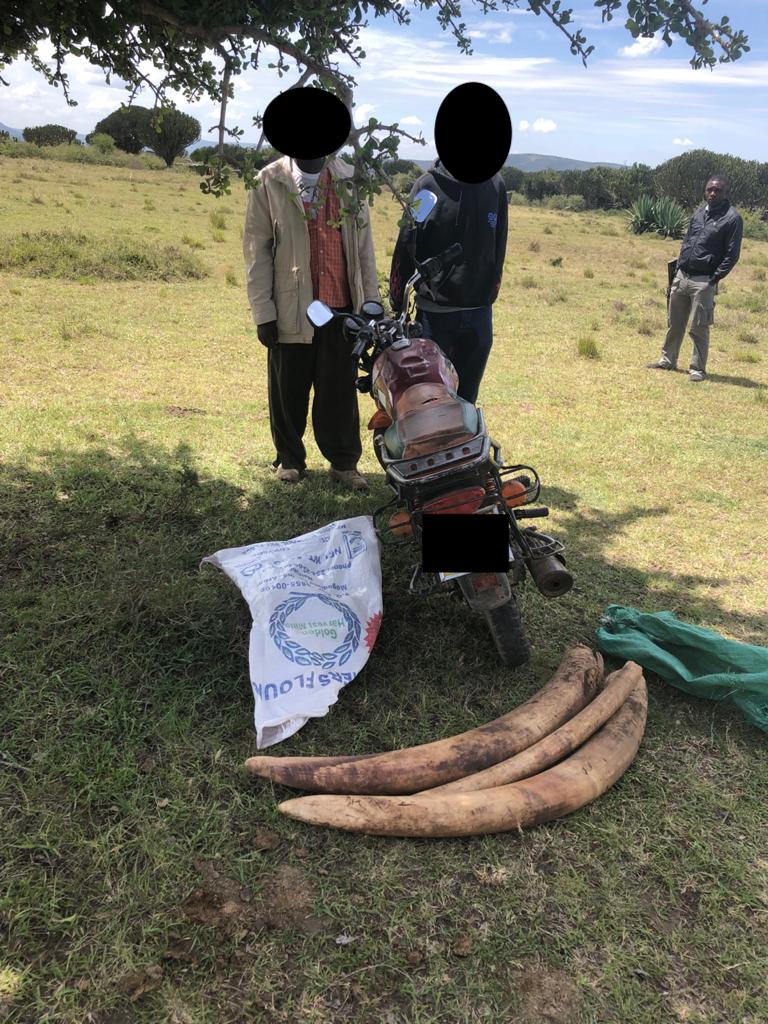
The two ivory busts led by the MEP intelligence unit in January resulting in a total of 41 kg of ivory seized and three suspects arrested.
In February, MEP’s intelligence led to the arrest of two total suspects in possession of 69.4 kg of ivory. On February 7, MEP’s intelligence team and KWS made an arrest on the Kenya/Tanzania border and seized 42.2 kg of ivory. During the arrest, one of our officers was minorly injured when the suspect tried to unsuccessfully escape. Then, just a week later on February 16 on the border again, MEP’s intelligence team alongside KWS arrested one suspect with five pieces of elephant tusks weighing 27.2 kg.
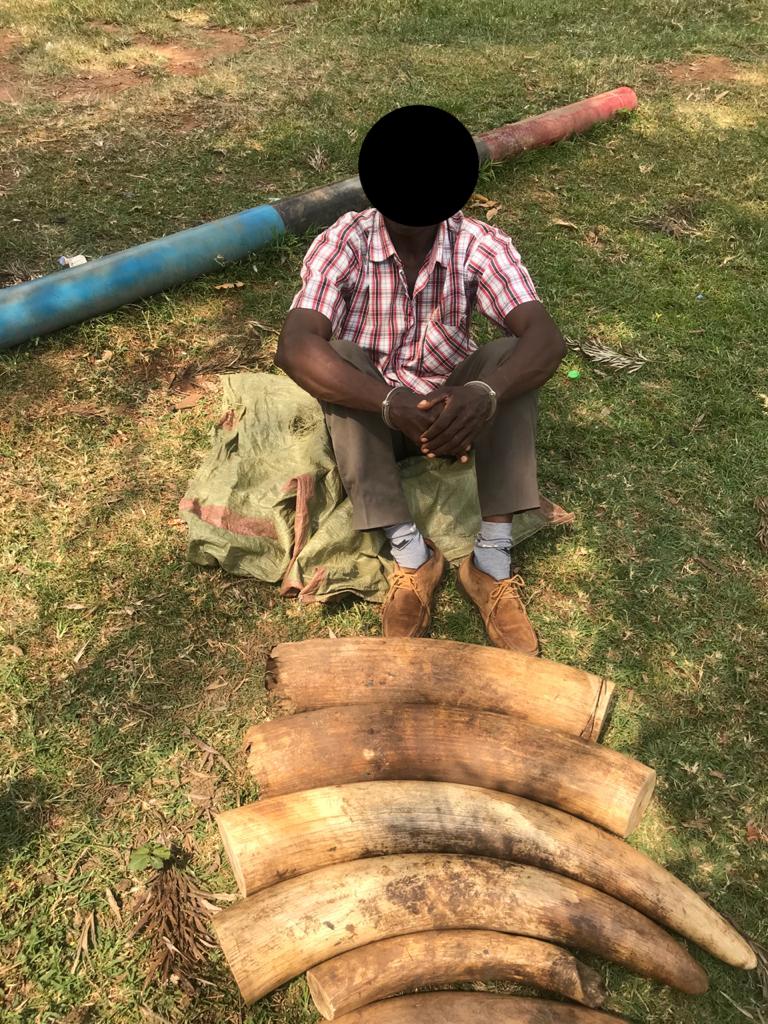
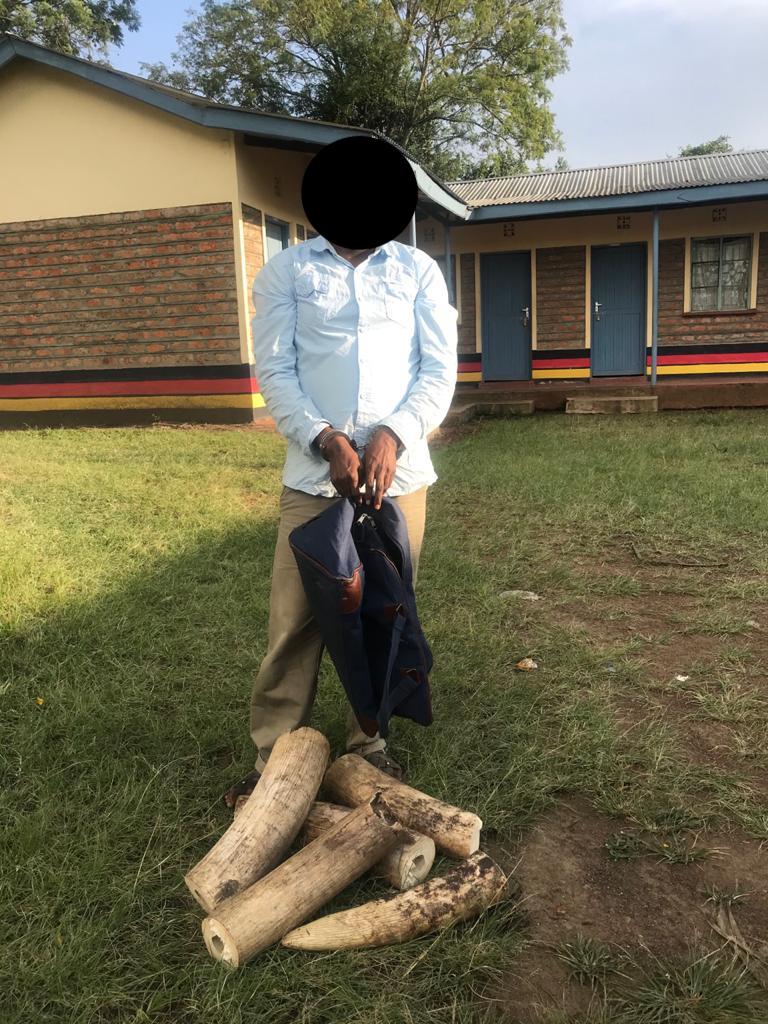
The two arrests and ivory seizures in February.
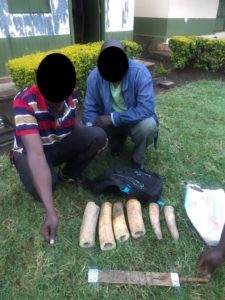 On March 9, the MEP intelligence unit alongside KWS arrested two suspects in the Transmara area in possession of 7 kg of ivory that was brought across the border from Tanzania. This was the third arrest this year in this area and MEP and KWS remain vigilant to ensure more successful operations. Overall, in the first quarter KWS and MEP seized 117.4 kg of ivory and arrested seven suspects (pictured left).
On March 9, the MEP intelligence unit alongside KWS arrested two suspects in the Transmara area in possession of 7 kg of ivory that was brought across the border from Tanzania. This was the third arrest this year in this area and MEP and KWS remain vigilant to ensure more successful operations. Overall, in the first quarter KWS and MEP seized 117.4 kg of ivory and arrested seven suspects (pictured left).
MEP rangers in response to a high number of snares and bushmeat poaching in 2020 joined partners and deployed new technology to help combat this alarming trend. We teamed up with KWS and Olarro Conservancy rangers in February and patrolled the corridor linking Olarro to Olkinyei Conservancy.

The joint Olarro patrol mission to remove snares.
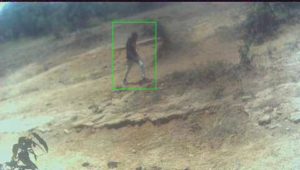 We also recently set up camouflage camera traps using RESOLVE and Intel’s TrailGuard AI along a popular crossing along the Mara River to catch bushmeat poachers on their way to set snares. Our intelligence gathering has shown that poachers are crossing the Mara River into two different bordering conservancies (Lemek and Olchorro) and setting snares. In March, photos like the ones seen here (pictured left), are captured by the camera traps then sent to our ranger units stationed nearby. It allows our teams to have a visual image of someone they potentially need to keep an eye on and catch these poachers before the snares are set. MEP is currently in the testing phase using this technology; however, if proven successful at helping us prevent bushmeat poaching before it happens, we’ll deploy more in other key areas to increase protection.
We also recently set up camouflage camera traps using RESOLVE and Intel’s TrailGuard AI along a popular crossing along the Mara River to catch bushmeat poachers on their way to set snares. Our intelligence gathering has shown that poachers are crossing the Mara River into two different bordering conservancies (Lemek and Olchorro) and setting snares. In March, photos like the ones seen here (pictured left), are captured by the camera traps then sent to our ranger units stationed nearby. It allows our teams to have a visual image of someone they potentially need to keep an eye on and catch these poachers before the snares are set. MEP is currently in the testing phase using this technology; however, if proven successful at helping us prevent bushmeat poaching before it happens, we’ll deploy more in other key areas to increase protection.
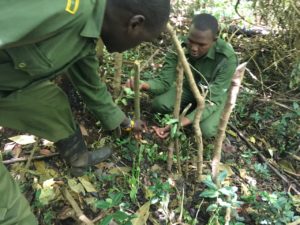
Overall, in the first quarter, MEP rangers alongside partners removed 22 snares, arrested three bushmeat poaching suspects and confiscated 20 kg of bushmeat. (pictured left: Rangers removing snares in February.)
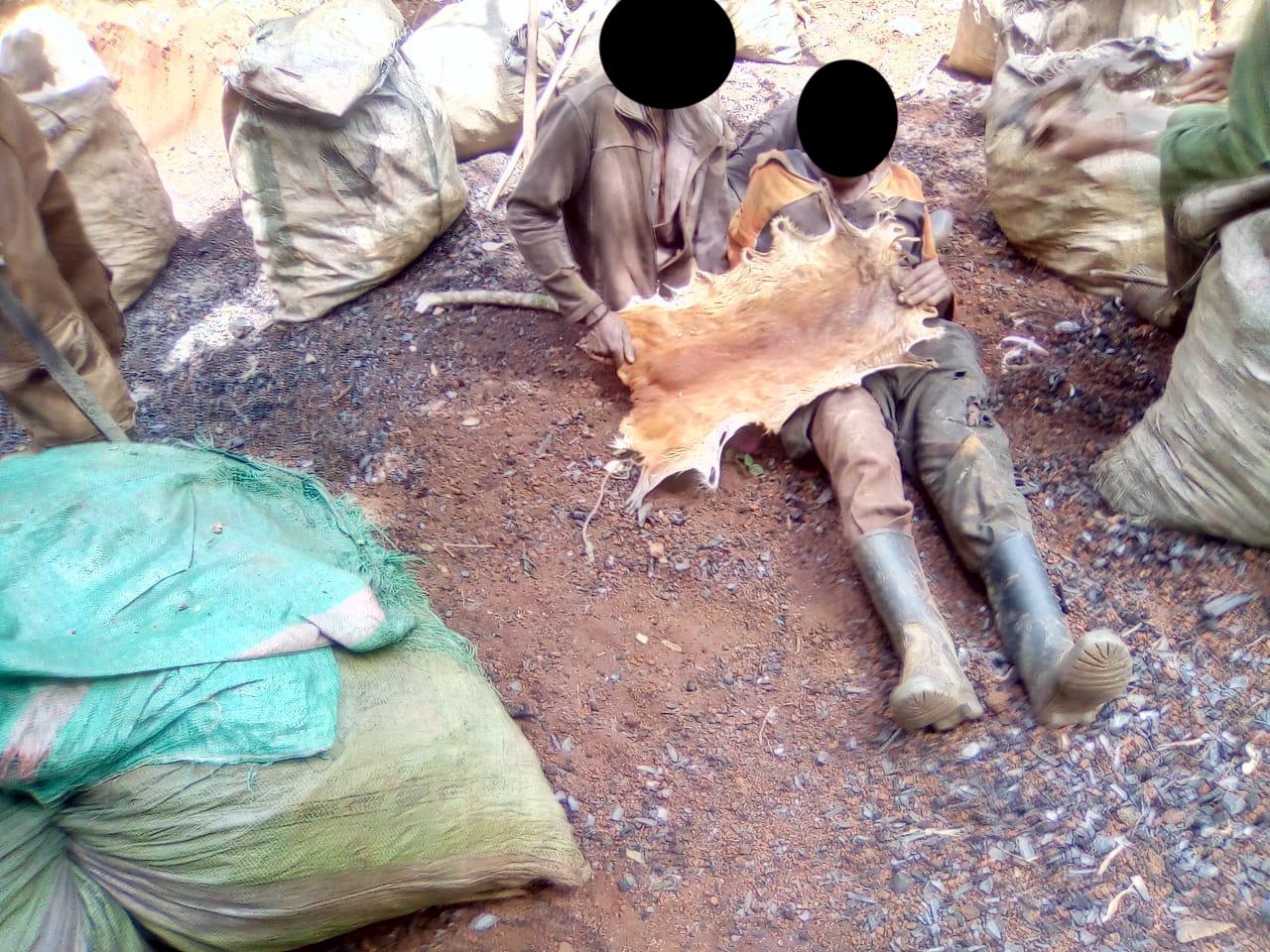
The Sheldrick Wildlife Trust Mau De-Snaring Unit rangers on January 14 during their normal patrol arrested two suspects with 15 kg of bushmeat and 4 snares. They also burnt down a poachers’ hut.
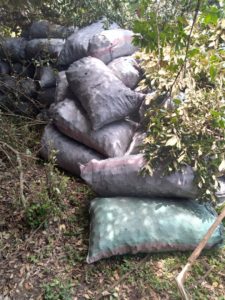 Rangers remained vigilant in our forest areas of operation, Mau, Loita and Nyakweri, to shut down any illegal logging or charcoal production. The MEP “Alpha” ranger unit was busy inside the Nyakweri Forest in March. On March 26, they uncovered a charcoal making operation and confiscated 90 bags of charcoal and destroyed three kilns (pictured left).
Rangers remained vigilant in our forest areas of operation, Mau, Loita and Nyakweri, to shut down any illegal logging or charcoal production. The MEP “Alpha” ranger unit was busy inside the Nyakweri Forest in March. On March 26, they uncovered a charcoal making operation and confiscated 90 bags of charcoal and destroyed three kilns (pictured left).
Overall, in the first quarter, MEP rangers and partners arrested 40 habitat destruction suspects, confiscated eight power saws, six trees, 891 posts and 105 timbers. They also destroyed 68 kilns and 140 sacks of charcoal.
Above: A kiln destroyed in the Mau Forest in January. Below: A charcoal arrest on January 4 with 18 bags of charcoal on donkeys.
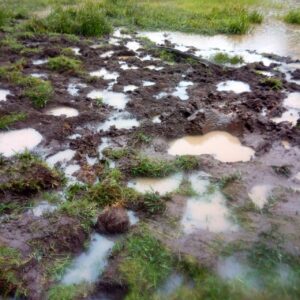 February was a very wet month in the Greater Mara Ecosystem (GME) and it was very green and beautiful in the first quarter despite last year’s forewarnings of drought. MEP’s rangers stationed in the field had to deal with increasingly impassable roads, wet camp sites and overflowing rivers all while continuing their efforts. They also dealt with an increase in conflict as crop were ripening in communities. In January, we deployed a ranger unit near the Naronyo Hill on Olchoro Conservancy across the Mara River near MEP’s HQ so they were in close proximity of the crop raiding elephants who cross into crops at night. The rangers patrolled in their vehicle along the river and were tasked with stopping the herds at the crossing points with their mitigation toolkit. In the early morning hours of February 6, MEP rangers got a call from community members in the Emarti area that elephants had been in their farms overnight and left behind a lot of damage. We responded immediately despite the heavy rains the night before to help assess the damage, take note of the extent and come up with a plan for increased protection so it doesn’t happen again.
February was a very wet month in the Greater Mara Ecosystem (GME) and it was very green and beautiful in the first quarter despite last year’s forewarnings of drought. MEP’s rangers stationed in the field had to deal with increasingly impassable roads, wet camp sites and overflowing rivers all while continuing their efforts. They also dealt with an increase in conflict as crop were ripening in communities. In January, we deployed a ranger unit near the Naronyo Hill on Olchoro Conservancy across the Mara River near MEP’s HQ so they were in close proximity of the crop raiding elephants who cross into crops at night. The rangers patrolled in their vehicle along the river and were tasked with stopping the herds at the crossing points with their mitigation toolkit. In the early morning hours of February 6, MEP rangers got a call from community members in the Emarti area that elephants had been in their farms overnight and left behind a lot of damage. We responded immediately despite the heavy rains the night before to help assess the damage, take note of the extent and come up with a plan for increased protection so it doesn’t happen again.

MEP rangers crossing an overflowing river to get to the community.
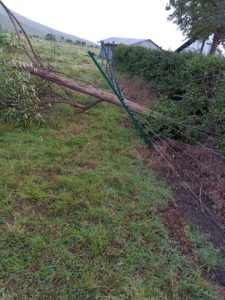 On February 12, MEP rangers responded when elephants destroyed a strong metal electric fence surrounding Olemoncho School (pictured left). They broke trees outside of the fence to bring both the fence and its electrical system down to then easily pass-through school grounds. Luckily no one but the fence was hurt. On February 5, MEP’s rangers were called into Ngoswani Center when a group of bulls had gotten stuck inside a fence. After the ranger’s efforts on the ground weren’t moving the bulls and tensions were rising, the leased MEP helicopter was called in to quickly move the bulls to safety. In March, the mobile ranger unit was also kept busy responding to conflict and patrolling conservancies like Lemek and Enonkishu noting elephant herds and monitoring collared elephants like Ivy from the ground. In total, MEP rangers responded to 16 conflict incidents in the first quarter.
On February 12, MEP rangers responded when elephants destroyed a strong metal electric fence surrounding Olemoncho School (pictured left). They broke trees outside of the fence to bring both the fence and its electrical system down to then easily pass-through school grounds. Luckily no one but the fence was hurt. On February 5, MEP’s rangers were called into Ngoswani Center when a group of bulls had gotten stuck inside a fence. After the ranger’s efforts on the ground weren’t moving the bulls and tensions were rising, the leased MEP helicopter was called in to quickly move the bulls to safety. In March, the mobile ranger unit was also kept busy responding to conflict and patrolling conservancies like Lemek and Enonkishu noting elephant herds and monitoring collared elephants like Ivy from the ground. In total, MEP rangers responded to 16 conflict incidents in the first quarter.
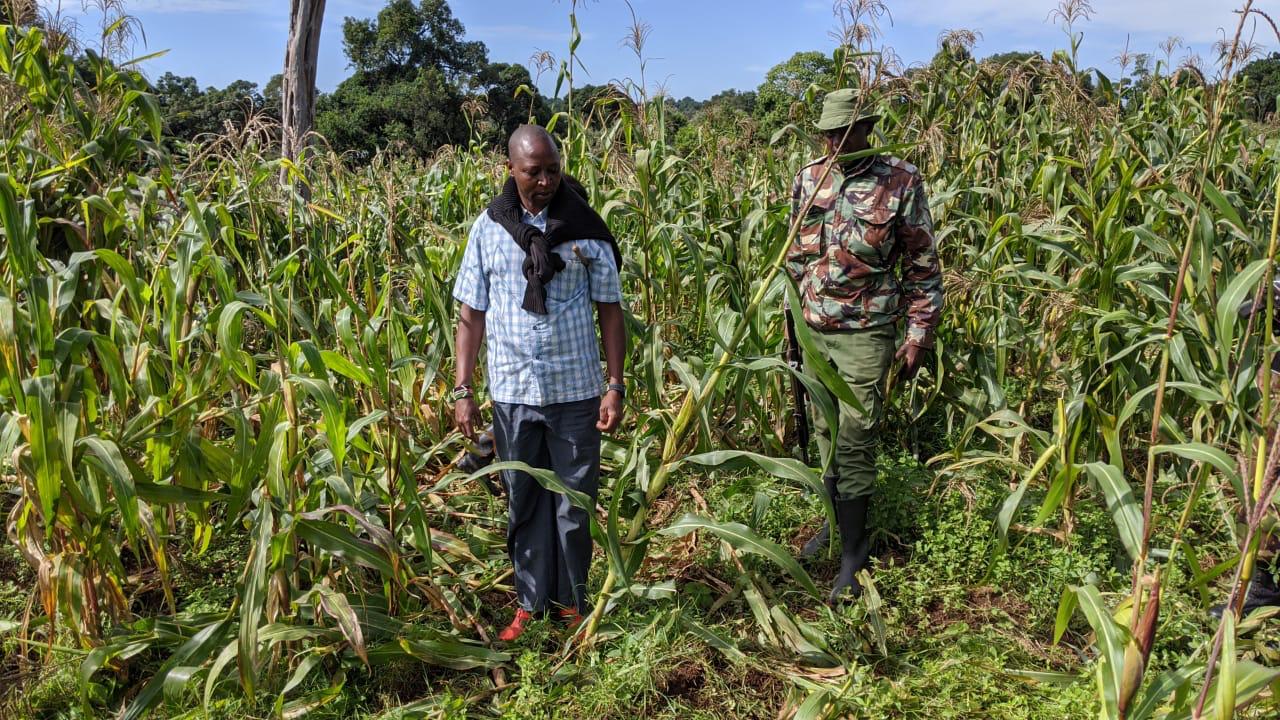
A group of five elephants raided a crop farm at night in Kilaye area on January 4.
